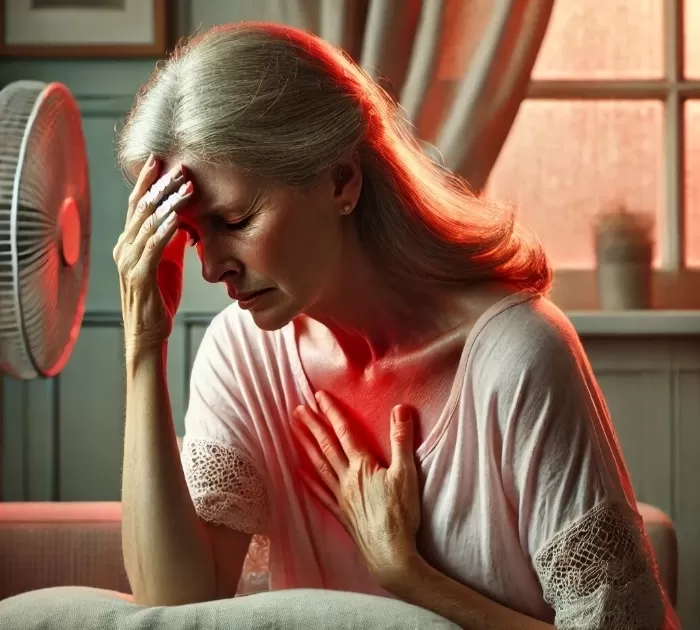Introduction
Night sweats, or excessive sweating during sleep, are a common symptom of menopause and perimenopause, caused primarily by hormonal changes. The decline in oestrogen affects the hypothalamus, the part of the brain responsible for regulating body temperature. When oestrogen levels drop, the hypothalamus may misinterpret the body’s temperature, causing a heat surge that triggers sweating to cool down the body. Factors like stress, hot environments, spicy foods, caffeine, and alcohol can exacerbate night sweats.


